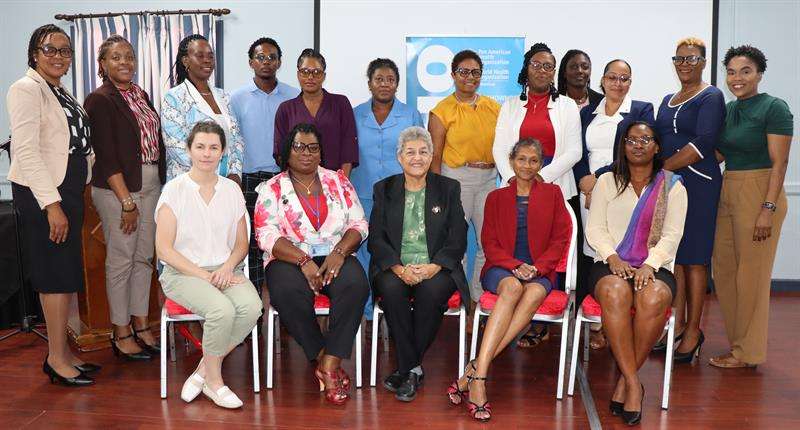Ministry of Health Collaborates with PAHO on Immunization Planning Workshop
The Ministry of Health in St. Lucia embarked on a critical two-day workshop on February 12th and 13th, bringing together a diverse group of stakeholders, including healthcare officials, policymakers, financial experts, and representatives from the Pan American Health Organization (PAHO). The primary objective of this collaborative effort was to delve into the financial intricacies of the Expanded Programme on Immunization (EPI) and chart a sustainable path for its future in St. Lucia. This workshop signified a crucial step towards equipping healthcare personnel with a deeper understanding of the financial frameworks that underpin effective immunization programs, enabling them to advocate for resources and ensure the long-term viability of these vital public health initiatives.
The driving force behind this initiative, National Immunization Manager Nurse Bernadette Regis, underscored the workshop’s significance in securing the necessary funding and resources to shield the population from vaccine-preventable diseases. The workshop’s core aim was to meticulously analyze the financial requirements for expanding the immunization program over the next five years, shifting the focus from mere planning to concrete cost calculations. This comprehensive financial assessment, a first of its kind for St. Lucia, is designed to position the country to effectively secure the funding necessary to bolster its national health system and expand access to life-saving vaccines for all its citizens. The workshop served as a platform to initiate this crucial financial planning process.
The workshop’s outcomes will directly inform future decision-making. Nurse Regis emphasized that the next phase involves conducting a thorough costing exercise. This detailed analysis will enable informed decisions on which expansions to prioritize, ultimately ensuring the sustainability of the immunization program and maximizing its impact on public health. The overarching goal is to guarantee equitable access to life-saving vaccines for every individual in St. Lucia, building a resilient and enduring immunization program that effectively protects the population.
PAHO Workshop Consultant Dr. Elizabeth Ferdinand highlighted the critical nature of this preliminary stage in laying the groundwork for future expansion. This initial phase focuses on identifying key priorities, assessing potential challenges, and determining the most feasible strategies for implementation. This careful evaluation of priorities, coupled with a realistic assessment of financial and human resource constraints, will provide the government with clear guidance on actionable steps for program expansion. The workshop provided a forum for these initial discussions, facilitating the identification of critical vaccines, strategies, and priorities for introduction over the next five years.
The workshop’s deliberations encompassed a comprehensive examination of the existing immunization program, including its strengths and weaknesses, as well as potential avenues for expansion. This involved identifying the specific vaccines to be incorporated, the target populations for expanded coverage, and the strategies required for effective implementation. A critical component of this analysis was the assessment of potential challenges, including financial constraints, logistical hurdles, and human resource limitations. By addressing these challenges proactively, the Ministry of Health aims to develop a robust and realistic plan for expanding the immunization program.
The collaboration between the Ministry of Health and PAHO underscores the nation’s commitment to strengthening health security and accessibility. By focusing on the financial sustainability of the EPI, the workshop aimed to solidify immunization as a cornerstone of public health efforts in St. Lucia. This partnership with PAHO provides valuable technical expertise and support, ensuring that the planning and implementation of the expanded immunization program align with international best practices and effectively address the specific needs of the St. Lucian population. This collaborative approach reinforces the country’s dedication to safeguarding public health and promoting the well-being of its citizens.
Share this content:












Post Comment